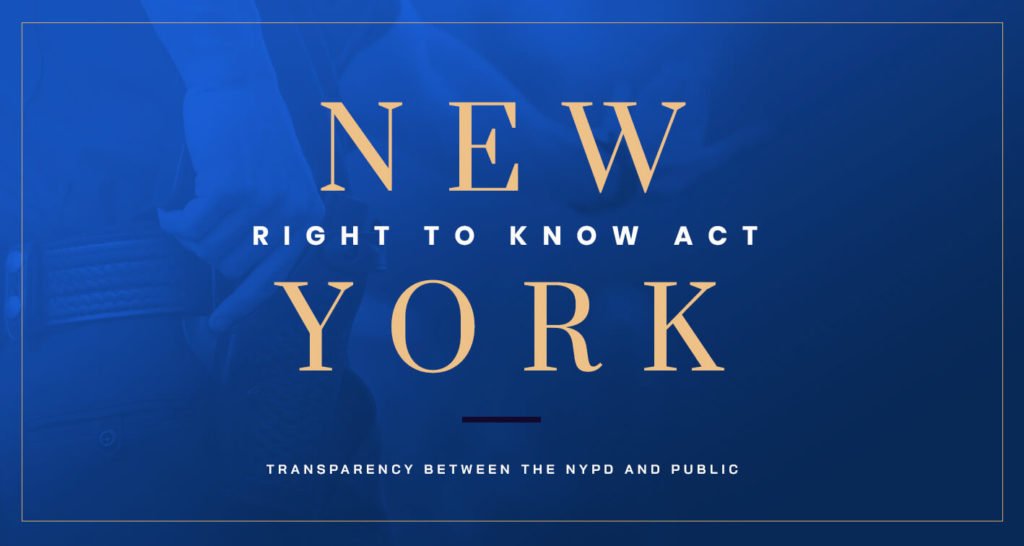What Is New York’s Right to Know Act?
November 5, 2018 in Blog

In 2017, New York City Council passed the Right to Know Act, a new law aimed at improving relations between the New York Police Department (NYPD) and the members of the public who interact with them. The new law comes on the heels of the NYPD’s aggressive implementation of “stop and frisk” tactics. City Council members based the Right to Know Act on a 2013 decision from a federal judge who ruled that stop and frisk tactics unfairly targeted black and Latino individuals.
Elements of the Right to Know Act
The rationale behind “stop and frisk” was for police to target high-risk areas that reported higher rates of violent crimes, and the new Right to Know Act helps balance the need for police to investigate with the rights of citizens who may feel unfairly targeted because of their race. Under the Right to Know Act, a police officer has the right to ask a passing citizen who he or she is and where he or she is going without needing to provide any justification for the questioning.
If the police officer wishes to conduct a frisk or search the person, the officer must be able to cite some objective evidence that indicates the person has committed a crime, intends to commit a crime, or is in the process of committing a crime. For example, if the police officer heard a radio warning about a dangerous suspect wearing similar clothing to the stopped person, the officer may legally conduct a frisk search.
To perform a search without objective evidence, the police officer must have the person’s knowing and voluntary consent. The officer must explicitly ask for permission to conduct a search and has the right to record a citizen agreeing or refusing to a search using a body camera or personal recording device. If the citizen does not speak English, the officer must arrange for an interpreter.
It’s important to note that the consent requirements included in the new Right to Know Act do not apply to legal searches conducted with warrants and any other exceptions to the Fourth Amendment protection against unreasonable searches and seizures. Some examples could include an officer witnessing criminal activity in plain view, or when an emergency requires the officer to take immediate action to save lives.
Police Business Cards
The NYPD recently ordered more than ten million business cards for their officers. Each card will include the officer’s name, badge number, rank, superior officer or command, and the reason for the encounter. Police already had to provide these cards to citizens upon request, but the Right to Know Act now requires them to provide these cards whenever they stop to search an individual so long as the search does not lead to a justified arrest or citation with a court summons.
Police do not have to provide their cards during traffic stops, but they do need to provide them at roadblocks and DUI checkpoints except at special events or specific locations that could be targets of violent crime. Police officers must also provide their cards to any witnesses at a crime scene as well as the people they question in connection with a criminal investigation. If a police officer does not have any business cards to provide, he or she must write down the required information for the person or dictate the information to the person so he or she may write it down.
If a police officer fails to ask consent for a search, the individual may clearly state his or her objection by declaring “I do not consent to this search.” This simple phrase can be useful later in case legal defense against an unjust charge is necessary. After stating his or her objection, the stopped person may ask if he or she is free to leave. If the individual consents to a search but then changes his or her mind, he or she may withdraw consent for the search. If a citizen believes an officer conducted an illegal search or otherwise violated the Right to Know Act, he or she can file a complaint with the Civilian Complaint Review Board.